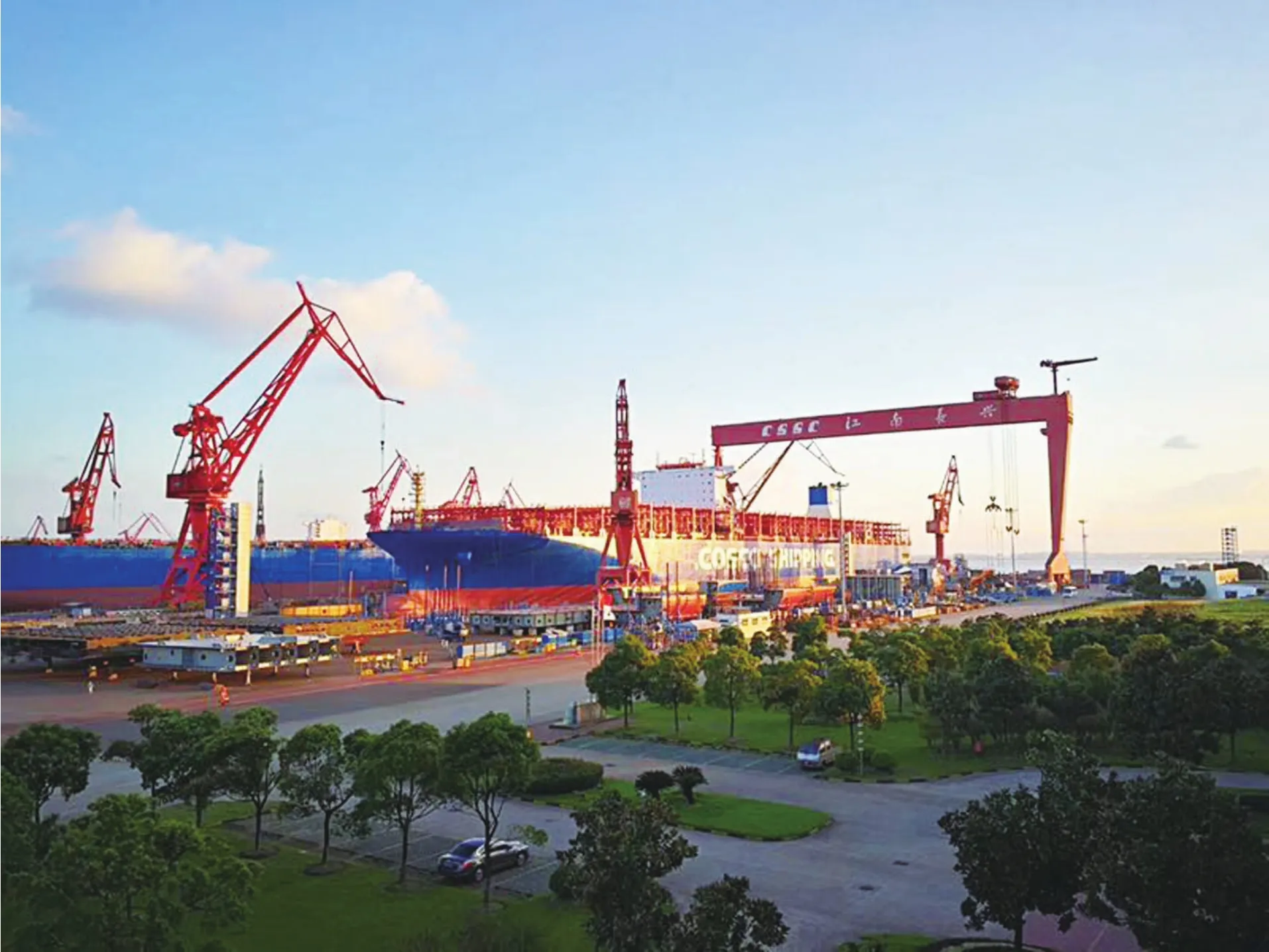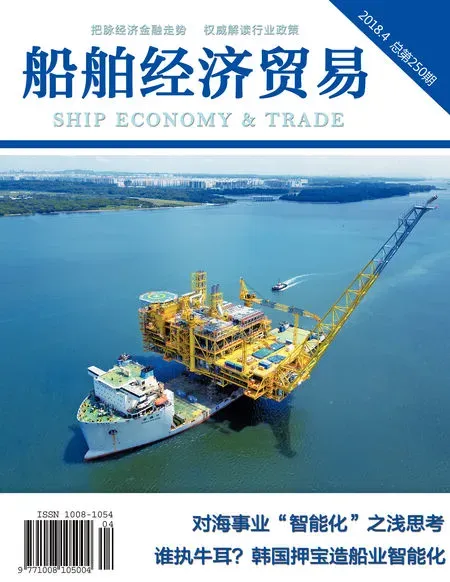US Tariff Increases Have Limited Impact on China’s Ship Import and Export Trade
By Zhang Shouchun
At noon of March 22 at US local time, US President Trump officially signed a trade to China memorandum ,announcing that tariffs would be imposed on imports from China on a large scale and restricting Chinese enterprise investment and M&A in the US. Trump requested US Trade Representative Lyte Heather to announce within 15 days a list of products with tariffs to be raised and publish finalized product list after the deadline of soliciting public views.
What impact will be generated on China ship export from US restricting measures to China then?Commodities with slapped tariffs are largely concentrated on high-tech and high value-added sectors. US Trade Representative Lyte Heather believed it was necessary to collect tariffs to high-tech products in “Made in China 2025” and exported to the US. These key development sectors include modern IT, automation mechanism and robot technology, space and aviation navigation equipment, marine equipment, high-tech equipment in the shipping sector, modern equipment in the rail traffic sector, new type automobile technology, energy equipment, agricultural equipment, new material, new type bio-pharmaceutical and medical care technology. Lyte Heather believed China would realize surpass in the sectors in 2-3 years and take a dominant position in the world,and the US absolutely never hopes the day will set in. Obviously, Americans are unwilling to see China transcend the Western modern civilization represented by the US.
Although the US has not announced a list of goods that have raised tariffs on China exports to the US, it is not hard to imagine that it very likely contains Chinese ships and other commodities including marine equipment exported to the US and will cause some influence on Chinese ships exported to the US.Meanwhile, due to exchange rate variation, it may cause negative influence on financing and settlement amount.
Trump move is aimed at easing and balancing China-US trade deficit and the US is unwilling to open up high-tech exports to China. Data from the Ministry of Commerce show once the US opens up high-tech exports to China, it can reduce the trade deficit by at least 35%. From the perspective of tariffs on commodities,in the 40-plus-year history of Chinese marine products export, there is no record of product dumping to overseas and impacting local market. This is mainly because of ship characteristic as a ultralarge special commodity. For example,ships are customized products and are generally not built in large quantities.Further, the price of a ship is determined in a way different from that of ordinary commodities, normally determined by both the buyer and the seller through repeated negotiation. Therefore, it can hardly constitute dumping in the course of the whole transaction and form monopoly on a particular market.
China is a big country of shipbuilding and export in the world,ranking ahead of Korea and Japan. The amount of Chinese export ships and marine equipment to the US is very limited all the time and can even be ignored. Main destinations of Chinese ship exports are Asia and Europe, and China’s Hong Kong and Singapore are two largest markets. From the amount of Chinese ship export to the US in recent five years, the US is not the principal market of Chinese ship export and ranks after 10th slot, yearly average export amount in recent five years accounts for 0.94% of total export of Chinese ships,less than 1%, a very limited percentage.
Therefore, the US slapping tariffs will temporarily not impose major and material impact on Chinese ship export,but will impost some negative influence on ship trade financing and exchange rate variation in transaction contract value settlement.
In the face of obvious protectionist practices of the US government, the Chinese Government promptly made a firm stand against it and took active responses. Ship enterprises should continue to follow developments, actively prepare preliminary plans to counter the “trade war” in light of actual conditions and must use WTO clauses to safeguard rights if there is a negative impact. At the same time, commercial departments of all levels (including China’s business institutions abroad),local competent departments and intermediary organizations of all levels should also give full play to their roles to jointly safeguard legitimate rights and interests of Chinese enterprises. In the meantime, they should go on promoting export industry restructuring, raising additional value of products, further step up independent R&D of high-tech and smart ship and marine equipment, rely on scientific and technological innovation to sharpen international competitiveness of products and realize continuous, steady and healthy development of Chinese ship import and export trade and Chinese overall commodity import and export trade.

- 船舶经济贸易的其它文章
- Beidou’s “Upgrade” Brings New Opportunity for Maritime Circles
- China Crude Oil Futures Come out How Does it Affect Shipping and Shipbuilding?
- Cruise ship Sails into LNG Era
- Innovation-Driven,Activate Corporate Development Motive Force
- 整体货源偏少运价低位震荡 2018年3月中国沿海(散货)运输市场分析
- 供求关系面临压力多数航线运价走低2018年3月中国出口集装箱运输市场分析

